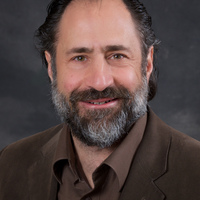
Angela Roothaan
After two years of studying Sociology in Leiden (1978-1980), I changed to the study of Philosophy in the same Dutch city (1980-1987). I defended my PhD at the University of Amsterdam in 1996, on Spinoza's Theological-Political Treatise. Since that same year I have been working at the Vrije Universiteit Amsterdam, first as a post-doc researcher, then assistant professor, and finally associate professor.
My teaching and research aims to get philosophy out of the ivory tower, and aims to inspire doing philosophy in engaged ways. Rooted in studies of European and American philosophy (mainly hermeneutics, phenomenology, critical theory, deconstructivism and pragmatism) I have developed a special focus on Intercultural African Philosophy, and aim to connect this to Postcolonial Theory. Special topics: environmental ethics, philosophy of nature, indigenous rights, politics of epistemology, spirit ontologies, indigenous knowledge systems.
Address: Amsterdam, Noord-Holland, Netherlands
My teaching and research aims to get philosophy out of the ivory tower, and aims to inspire doing philosophy in engaged ways. Rooted in studies of European and American philosophy (mainly hermeneutics, phenomenology, critical theory, deconstructivism and pragmatism) I have developed a special focus on Intercultural African Philosophy, and aim to connect this to Postcolonial Theory. Special topics: environmental ethics, philosophy of nature, indigenous rights, politics of epistemology, spirit ontologies, indigenous knowledge systems.
Address: Amsterdam, Noord-Holland, Netherlands
less
Related Authors
veniero venier
Università Ca' Foscari Venezia
Philip Blosser
Sacred Heart Major Seminary
Stephen Wigmore
University of Warwick
Zeynep Direk
Koç University
Thomas Szanto
Europa-Universität Flensburg
Peter J Colosi
Salve Regina University
Hilge Landweer
Freie Universität Berlin
Jove Jim S Aguas
University of Santo Tomas, Phils
J. Edward Hackett
Southern University
InterestsView All (23)










Uploads
Papers by Angela Roothaan
https://poj.peeters-leuven.be/content.php?url=article&id=3289376&journal_code=TVF
In my paper I will analyze and highlight the distinctions between the three mentioned approaches, and show how they should complement each other. Combining the three approaches necessitates philosophical understanding to open up to interdisciplinarity, working together with researchers and making use of research from the humanities and the sciences. Finally the intercultural approach should be enriched by making more explicit the workings of power in dialogue – making use of insights from critical and postcolonial theory.
The intercultural approach in philosophy (first introduced by thinkers such as Kimmerle and Mall), inspired by hermeneutics and deconstruction, put the dialogical character of philosophical understanding in the spotlight – the need for thinkers from different cultural traditions to listen to each other and let their concepts be changed in the process of dialogue. Dialogue presupposes the possibility of intercultural understanding – and therefore also transculturality – the ability for human beings to understand their questions as shared or common ones. Intercultural dialogue should progress slowly, however, to prevent repeating hegemonic knowledge systems under the cloak of a fusion of horizons. It should describe and address explicitly the historical forces of power play and oppression in human societies – following thinkers such as Foucault and Fanon. Finally intercultural philosophy should also make use of and promote the humble and hard work of cross-cultural research in the humanities and the sciences to undergird its striving for a more inclusive understanding of the world. This cross-cultural approach was introduced by Cheich Anta Diop, whose Afrocentric research into the transference of culture and language, has become a serious research paradigm in a time that recognizes the need of multi-centeredness to reach a mature knowledge of the place of human beings in the world.
In 2012, elephants from two separate herds walked about twelve hours to hold what seemed to be a vigil for their deceased rescuer, South African conservationist Lawrence Anthony. Their story was met with reactions varying from intrigue to disbelief, as standing ideas on non-human animals forbid us to think they might outdo humans in their capacity to sense the death of a close one, even across species-boundaries. In my chapter this story will be the starting point to critically address Western dominated philosophical views of human-animal relations, and explore it for its potential for a new philosophical environmentalism starting from an African context. The story holds several important elements that will be analyzed consecutively and will provide arguments for decolonized human-animal relations. First: the elephants’ behavior has to be understood in the historical context of troubled human-elephant encounters, as well as land dispossession in (neo-) colonial contexts. Second: their ‘family relationship’ to the person who granted them asylum in his private nature reserve asks us to transcend the ‘colonial’ othering of non-human animals. Third: the elephants’ potential to sense the dying of a ‘relative’ invites us to acknowledge distant ‘feeling’ perception, which is acknowledged in traditional, ‘shamanistic’ epistemologies. All three elements lead to understanding and accepting human perception and agency to be continuous with that of non-human animals rather than radically different. This chapter will make use of multi- and inter-disciplinary decolonizing approaches (Bamana, Kohn, Murombedzi, Plumwood).
The world is full of persons (people if you prefer), but few of them are human
The world is full of other-than-human persons
The world is full of other-than-oak persons
The world is full of other-than-hedgehog persons
The world is full of other-than-salmon persons
The world is full of other-than-kingfisher persons
The world is full of other-than-rock persons…
Graham Harvey, An Animist Manifesto (2012).
other; Emmanuel Eze for his in-depth critique of Kant and Hegel’s ideas of humanity and the racialised and racist frames of thought they left behind and both Fanon and Eze for their proposals to understand humanity as a project under construction; Amilcar Cabral for his
views on the interrelatedness of political and cultural identity in a situation of the building of new nations. Achille Mbembe because he showed the relations between the former colo- nizers and the formerly colonized to be characterized by conflicting temporalizations and
Michael Eze for his understanding of historical agency in the condition of postcolonialism. Through this discussion I will disentangle the relations between identity (political and cultural) and humanity in the postcolony, and arrive, after a critique of the racist Enlightenment, at an inclusive, instead of an exclusive, understanding of humanity and historical agency
https://poj.peeters-leuven.be/content.php?url=article&id=3289376&journal_code=TVF
In my paper I will analyze and highlight the distinctions between the three mentioned approaches, and show how they should complement each other. Combining the three approaches necessitates philosophical understanding to open up to interdisciplinarity, working together with researchers and making use of research from the humanities and the sciences. Finally the intercultural approach should be enriched by making more explicit the workings of power in dialogue – making use of insights from critical and postcolonial theory.
The intercultural approach in philosophy (first introduced by thinkers such as Kimmerle and Mall), inspired by hermeneutics and deconstruction, put the dialogical character of philosophical understanding in the spotlight – the need for thinkers from different cultural traditions to listen to each other and let their concepts be changed in the process of dialogue. Dialogue presupposes the possibility of intercultural understanding – and therefore also transculturality – the ability for human beings to understand their questions as shared or common ones. Intercultural dialogue should progress slowly, however, to prevent repeating hegemonic knowledge systems under the cloak of a fusion of horizons. It should describe and address explicitly the historical forces of power play and oppression in human societies – following thinkers such as Foucault and Fanon. Finally intercultural philosophy should also make use of and promote the humble and hard work of cross-cultural research in the humanities and the sciences to undergird its striving for a more inclusive understanding of the world. This cross-cultural approach was introduced by Cheich Anta Diop, whose Afrocentric research into the transference of culture and language, has become a serious research paradigm in a time that recognizes the need of multi-centeredness to reach a mature knowledge of the place of human beings in the world.
In 2012, elephants from two separate herds walked about twelve hours to hold what seemed to be a vigil for their deceased rescuer, South African conservationist Lawrence Anthony. Their story was met with reactions varying from intrigue to disbelief, as standing ideas on non-human animals forbid us to think they might outdo humans in their capacity to sense the death of a close one, even across species-boundaries. In my chapter this story will be the starting point to critically address Western dominated philosophical views of human-animal relations, and explore it for its potential for a new philosophical environmentalism starting from an African context. The story holds several important elements that will be analyzed consecutively and will provide arguments for decolonized human-animal relations. First: the elephants’ behavior has to be understood in the historical context of troubled human-elephant encounters, as well as land dispossession in (neo-) colonial contexts. Second: their ‘family relationship’ to the person who granted them asylum in his private nature reserve asks us to transcend the ‘colonial’ othering of non-human animals. Third: the elephants’ potential to sense the dying of a ‘relative’ invites us to acknowledge distant ‘feeling’ perception, which is acknowledged in traditional, ‘shamanistic’ epistemologies. All three elements lead to understanding and accepting human perception and agency to be continuous with that of non-human animals rather than radically different. This chapter will make use of multi- and inter-disciplinary decolonizing approaches (Bamana, Kohn, Murombedzi, Plumwood).
The world is full of persons (people if you prefer), but few of them are human
The world is full of other-than-human persons
The world is full of other-than-oak persons
The world is full of other-than-hedgehog persons
The world is full of other-than-salmon persons
The world is full of other-than-kingfisher persons
The world is full of other-than-rock persons…
Graham Harvey, An Animist Manifesto (2012).
other; Emmanuel Eze for his in-depth critique of Kant and Hegel’s ideas of humanity and the racialised and racist frames of thought they left behind and both Fanon and Eze for their proposals to understand humanity as a project under construction; Amilcar Cabral for his
views on the interrelatedness of political and cultural identity in a situation of the building of new nations. Achille Mbembe because he showed the relations between the former colo- nizers and the formerly colonized to be characterized by conflicting temporalizations and
Michael Eze for his understanding of historical agency in the condition of postcolonialism. Through this discussion I will disentangle the relations between identity (political and cultural) and humanity in the postcolony, and arrive, after a critique of the racist Enlightenment, at an inclusive, instead of an exclusive, understanding of humanity and historical agency
The book investigates how the concept of beauty in African philosophy and related qualitative social sciences may contribute to a richer intercultural exchange on the idea of development. While working within frameworks created in post-colonial and arguably neo-colonial times, African thinkers have reacted against the mainstream view that restricts the meaning and scope of good development to economic growth and Western-style education. These thinkers have worked toward a critical self-understanding of the potentials inherent in cultural, spiritual, and political traditions since pre-colonial times. Edited by Bolaji Bateye, Mahmoud Masaeli, Louise Müller, and Angela Roothaan, this collection explores branches of thought from wisdom or oral traditions to political thought and philosophy of culture. This book is urgent reading material for any policy maker, scholar, or student wishing to attend to the voices of African(ist) thinkers who search for alternative approaches to global questions of development in a time of climate change and increasing socio-economic inequality.
This book was introduced by Louise Müller- as a first author- and Angela Roothaan. Louise Müller is the co-editor, final editor and academic content manager of this book.
This book discusses how initiatives to tackle environmental problems cross-nationally are often challenged by economic growth processes in postcolonial nations and further complicated by fights for land rights and self-determination of indigenous peoples. For these peoples, survival requires countering the scramble for resources and clashing with environmental organizations that aim to bring their lands under their own control. The author explores the epistemological and ontological clashes behind these problems. This volume brings more awareness of what structurally obstructs open exchange in philosophy world-wide, and shows that with respect to nature, we should first negotiate what the environment is to us humans, beyond cultural differences. It demonstrates how a globalizing philosophical discourse can fully include epistemological claims of spirit ontologies, while critically investigating the exclusive claim to knowledge of modern science and philosophy.
The book starts by arguing for a greater theological engagement with value ethics, personalism and the phenomenological method by drawing on thinkers such as Max Scheler and William James. It then provides an understanding of the social and religious dimension of the valuing person, demonstrating the importance of the emotional, as well as the cognitive, dimension of value experience. Finally, this value perspective is utilised to engage with current moral issues such as professional ethics, environmental ethics, economical ethics and family ethics.
Integrating the concepts of religious experience, moral motivation, and subjective and objective value within a broad framework of Christian theology and philosophy, this is vital reading for any scholar of Theology and Philosophy with an interest in ethics and moral reasoning.
"This course will address the issue of non-violence in postcolonial nation-building through the lens of leaders and thinkers such as King, Helder Camara, Mandela and Kaunda, as well as reflections by Mbembe, Derrida and Fanon."
https://vu.nl/en/education/professionals/courses-programmes/violence-and-nonviolence-nation-building-in-the-age-of-postcolonialism/overview
More details and how to enroll are here:
https://vu.nl/en/education/professionals/courses-programmes/intercultural-philosophy-in-global-times
De Nigeriaanse filosoof Sophie Olúwolé (1935 – 2018) was een belangrijke Afrikaanse Yoruba filosofe met internationale bekendheid. Ze haalde als eerste vrouw in Nigeria een doctorstitel in de filosofie. Ze werd een voorvechtster van anti-koloniaal denken en van vrouwenrechten binnen de traditionele Yoruba cultuur. Haar kritiek op het idee dat westers denken superieur zou zijn aan het Afrikaanse, heeft de Afrikaanse klassieke filosofische orale traditie definitief op de kaart gezet. Olúwolé bestudeerde als eerste en weinige het Ifa corpus, wat een belangrijke rol speelt in de orale Yoruba traditie, in haar Afrikaans filosofische context. Kom luisteren naar de filosofen Louise Müller en Angela Roothaan die uitleggen wie Sophie Olúwolé was, en wat wij van haar gedachtengoed kunnen leren.
Lees het verslag: https://www.ru.nl/radboudreflects/ter...
Of beluister de podcast: https://soundcloud.com/radboudreflect...
African philosophy can be approached in many different ways – as a discussion on the nature of philosophy itself and what an African philosophy would be, and also as a focus on issues of global and current interests where historically and geographically African experiences will shed some light on the little-known facts in global philosophy. In this course, we will focus on the latter to better understand the world of today from an African perspective.
As the present-day African states came into being less than a century ago, inheriting institutional structures and boundaries from a colonial age, African philosophers have spent much thought on questions of identity, culture, differences between knowledge systems, the relationships between language and understanding, and more issues that pertain to the postcolonial, multicultural and intercultural world we all live in. Their viewpoints and answers contain insights and points of reflection for all humankind.
In the course, we will read texts from renowned philosophers such as Kwame Appiah, Paulin Hountondji, Henry Odera Oruka, and Kwasi Wiredu. Texts will focus on the relations between cultural identity and knowledge systems in the global post-colony. Written by and sometimes for Africans, the texts help to understand the dilemmas of the present times that are relevant to people from all over the world.
This course is organised by the Vrije Universiteit in Amsterdam, but the guest lecturers include African-based philosophers – from Cameroon and Senegal. The Dutch lecturers are affiliated to both Dutch universities and those on the African continent, in Nigeria and South Africa.
For more information and how to apply visit: https://www.vu.nl/en/programmes/short/winter-school/courses/african-philosophy.aspx
Beauty in African Thought: A Critique of the Western Idea of Development investigates how the concept of beauty in African philosophy and related qualitative social sciences may contribute to a richer intercultural exchange on the idea of development. While working within frameworks created in post-colonial and arguably neo-colonial times, African thinkers have reacted against the mainstream view that restricts the meaning and scope of good development to economic growth and Western-style education. These thinkers have worked toward a critical self-understanding of the potentials inherent in cultural, spiritual, and political traditions since pre-colonial times. Edited by Bolaji Bateye, Mahmoud Masaeli, Louise Müller, and Angela Roothaan, this collection explores branches of thought from wisdom or oral traditions to political thought and philosophy of culture. This book is urgent reading material for any policy maker, scholar, or student wishing to attend to the voices of African(ist) thinkers who search for alternative approaches to global questions of development in a time of climate change and increasing socio-economic inequality.
Well-Being in African Philosophy: Insights for a Global Ethics of Development, edited by Bolaji Bateye, Mahmoud Masaeli, Louise Müller, and Angela Roothaan, explores the notion of well-being in African and intercultural philosophy and its insights into global ethics of development. Drawing from longstanding debates on communitarianism in the context of personhood in African philosophy, as well as those in intercultural philosophy, the diverse contributors present manifold ways to philosophize about well-being from African contexts. Hailing from sub-Saharan Africa, Europe, and the Middle East, they address questions of human well-being related to the major global challenges of our time, such as climate change and socio-economic, gender, and racial inequality in society, education, and organization. This collection, building on the work of African independence philosophers as well as oral traditions from a critical development studies perspective, offers fresh views on well-being, development, and morality, thus contributing to global ethics from an African vantage point.